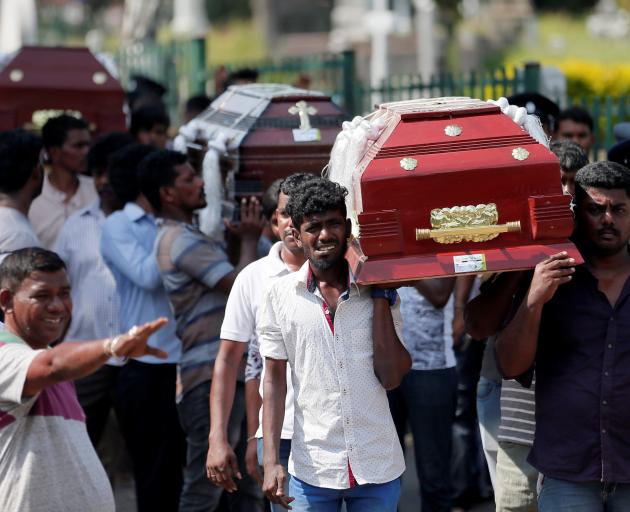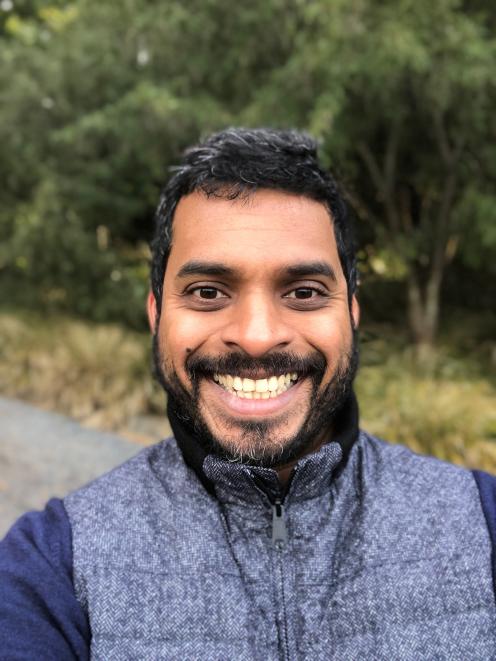
Deeply scarred and still running scared, my country is only slowly coming to terms with the scale and scope of terrorism experienced on Easter Sunday.

In total, over 250 died. Hundreds more, including children, were severely injured. Some will bear the scars of the violence they survived for life. Looking at the photos and video of the churches that were targets of the suicide bombers, some with the entire roof blown away, it is incredible how anyone survived.
The extent of grief and trauma is difficult to comprehend, capture or calculate. My 12-year-old son lost a classmate in one of the attacks. This violence is entirely new and alien to him and his generation.
The fear and anxiety after the attacks paralysed the entire country for a fortnight. Shopping malls, cinemas, supermarkets, markets, parks, playgrounds, beaches and hotels were almost completely deserted. Tourism disappeared, overnight. Hotels and airlines suffered unprecedented cancellations, and tourists already in the country hurriedly departed. The economic consequences will be catastrophic, in a country just recovering from a calamitous constitutional imbroglio last year.
In conversations conducted online and in person after the terrorism in Christchurch, many saw or introduced me as someone who was used to egregious violence. If nothing else, this assumption was a sobering reminder of what Sri Lanka remains associated with. I didn't know quite how to respond at the time.
Events of Easter Sunday haven't made it any easier. Many studying violent conflict and terrorism have not lived through either. This privilege is not always understood as such. Growing up, my parents never once appeared together at public functions with my sister and me.
Only as an adult did I learn why. Fearful of what at the time were frequent terrorist attacks, my parents didn't want us to grow up orphaned, which meant one of them always stayed behind or away from whatever we attended in public, including school prize-givings or even going to the cinema. These are now conversations and choices, both faintly familiar yet truly jarring, that have renewed purpose and place. Forced to confront and respond, words that meaningfully capture this violence are elusive and challenging.
Collectively, what does this portend for a country set to commemorate in May a decade after the end of war? Well before Easter Sunday, 2019 promised to be tumultuous. A presidential election slated towards the end of the year will be extremely consequential.
Populism that whips up and harvests ethno-nationalist tension has been a staple of Sri Lanka's mainstream political culture for decades, and finds renewed vigour and vitality in a context of economic volatility, unmoored identity, growing anxiety and a near total loss of confidence in the Government's ability to deliver on its promises. The incumbent President, elected to office in January 2015 as a reformer and democrat, has repeatedly proved to be anything but. Relations between the Prime Minister and President are close to non-existent. The extent to which this is a problem was revealed in the aftermath of the Easter Sunday attacks.
Domestic and foreign intelligence reports warning, repeatedly and for months, the clear and present danger of terrorist attacks were presented to the President, but for whatever reason went unheeded and ostensibly kept away from the Prime Minister.
Astonishingly, several senior ministers on Twitter expressed surprise and shock the Government ignored these reports. A fortnight after the attacks, the Speaker implored the President and Prime Minister to speak with one voice, channelling diplomatically the rapidly growing public disgust and anger against both. It is unclear how a Government this deplorably dysfunctional and in disarray can generate the votes necessary to remain in power for a second term.
Distressingly, the response to terrorism has shifted the country to the right and almost inexorably towards the uncritical embrace of militarisation. Hawkish rhetoric is warmly welcomed in public, Parliament and the press.
Draconian emergency regulations giving unbridled powers to security forces were imposed soon after the attacks and are likely to remain for months to come. Bizarrely, the President was quick to identify human rights activists as those who somehow were responsible for terrorism. Not to be outdone, the Army Commander told the BBC that ``too much of freedom'' and ``too much of peace'' had contributed to a context that allowed for the resurgence of terrorism. It is unclear what the metric used is, and how much is too much. A ban on wearing the burqa was imposed, even though the connection with this garment and terrorism remains unproven and unknown. The emergency regulations, which now make it a criminal offence to publish, produce or promote content that incites violence or unrest, acts as a deterrent to journalism that captures or bears witness to communal violence that has - with increasing frequency - erupted across the country.
The targets of this violence are primarily the Muslim community, as well as refugees from Afghanistan and Pakistan. The vacuum of credible news and information, coupled with incoherent crisis communications from the Government, allows malicious rumours to generate and grow apace. Incendiary communal tensions that pre-dated the terrorism on Easter Sunday have found a new accelerant in the form of general confusion, a grief morphing into anger and the return of fears from over a decade ago. This is a context ripe for partisan exploitation, communal division and misinformation.
In many ways, the terrorism on Easter Sunday was a comprehensive country reset. What we collectively turn to and into now, is uncertain. Ten years after the end of war, plunging headlong into another is now a real risk. Diversity, democracy and dignity were Aotearoa's response to terrorism. Sri Lanka has sadly taken a different path. One risks disappointment to hope vital lessons from here aren't entirely unheeded back home, in the months and years to come.
Sanjana Hattotuwa is a PhD student at the National Centre for Peace and Conflict Studies (NCPACS), University of Otago.
Comments
"Diversity, democracy and dignity were NZ's response to terrorism. Sri Lanka has sadly taken a different path".
NZ and Sri Lanka are so very different in ethnic mix, it's almost impossible to compare them, so I find it difficult to discern if Mr Hattotuwa is being innocently naive, or is intentionally shielding his country's large percentage of the very people presently trashing Europe.












